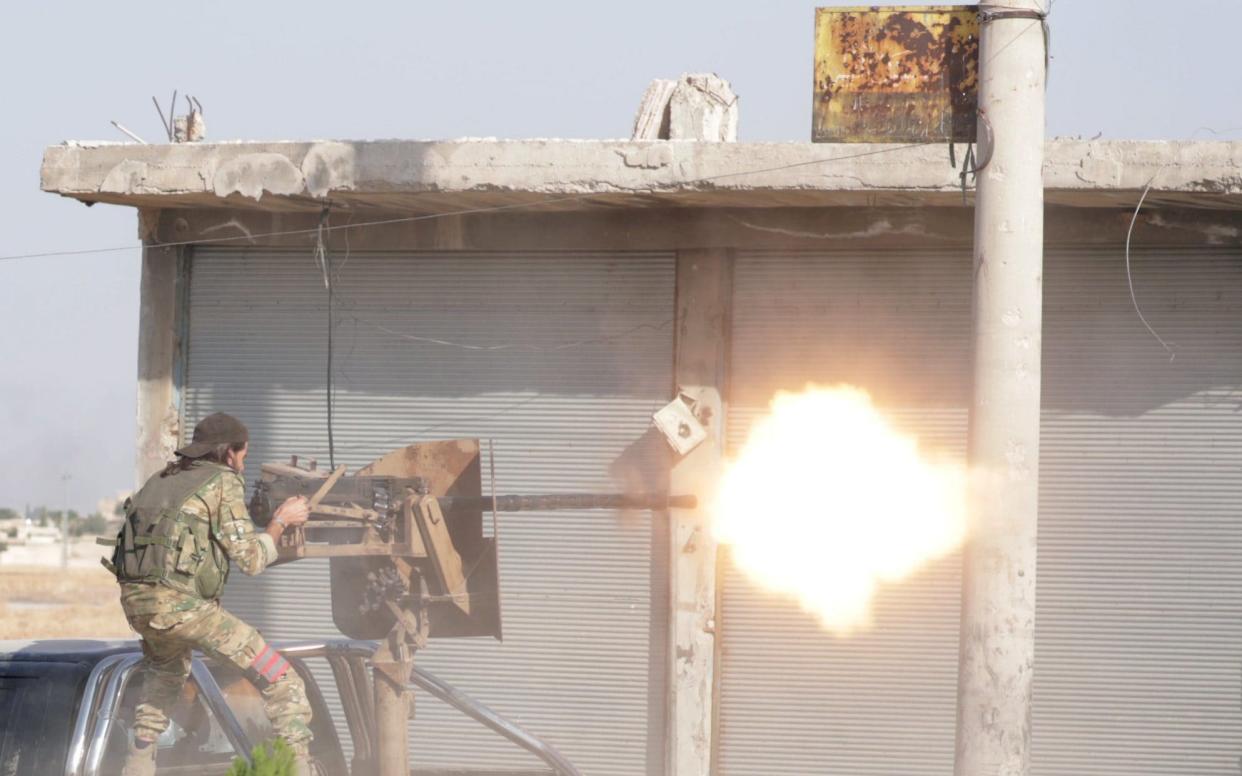Britain accused of putting trade deals before condemnation of Turkey

Britain was left isolated and facing condemnation by close allies last night after ministers defended Turkey's attack on Kurdish-controlled northern Syria and attempted to block EU criticism of it.
Ben Wallace, the defence secretary, shocked delegates at a Nato meeting in London when he said: “Turkey needs to do what it sometimes has to do to defend itself”.
Meanwhile, European diplomats reacted with disbelief when the UK allegedly resisted language condemning the Turkish action at a meeting of EU Foreign Ministers in Luxembourg.
Addressing the Nato Parliamentary Assembly, Britain’s Defence Secretary said Turkey “must take due regard to the treatment of civilians and human rights” in regard to the current campaign.“
Mr Wallace added: “It is absolutely clear that Turkey has had, and still does have, a threat emanating towards it from groups such as the PKK, a terrorist organisation in this country as well, and that Turkey needs to do what it sometimes has to do to defend itself”.

A German delegate from the Bundestag expressed astonishment at the comments and asked if Mr Wallace thought the military action counted as self-defence. “If you are convinced that Turkey has a legitimate reason for invading Syria, what would be your answer to the Turks if they were to ask you, in reference to Article 5, that Nato should support them?” he said.
In Luxembourg, diplomats accused Britain of blocking conclusions condemning Turkey for its invasion out of fears of jeopardising a post Brexit trade deal with Ankara. The Telegraph understands Josep Borrell, the incoming EU foreign policy chief, had to intervene to break the logjam, with suggestions that the British resistance had been a tactic to ensure Turkey was recognised as a “key partner” of the EU in the final communique.
“The thinking here is they thought condemnation might not tally well with their wish to come to an Free Trade Agreement post Brexit,” said one EU diplomat in Luxembourg.
The European Council statement eventually said: “The EU condemns Turkey’s military action which seriously undermines the stability and the security of the whole region."
The EU on Monday called on members to halt arms exports to Turkey. Germany, France, the Netherlands, Finland, and the Czech Republic, but not the UK, had all done so by Monday evening.
The Ministry of Defence last night said it would not grant any new arms export licenses, but did not commit to halting those already in place.
The tense diplomatic exchanges came as UK special forces, who for years fought alongside the Kurdish-led Syrian Democratic Forces against Islamic State, were ordered out of Syria.
The Squadron of about 100 men, thought to be from 22 Special Air Service Regiment, cannot continue to operate without US logistic support which will vanish following Donald Trump's decision to withdraw from the region.
They are believed to have played a key role calling in airstrikes and training SDF fighters in advanced infantry tactics during the five-year war against Isil's so-called Caliphate, and stayed on to hunt down fugitive Isil commanders who escaped after the group's last bastion fell in March.
Britain and France were the largest contributors after the United States to the international coalition that formed to fight Isil in 2014.

 Yahoo News
Yahoo News 
